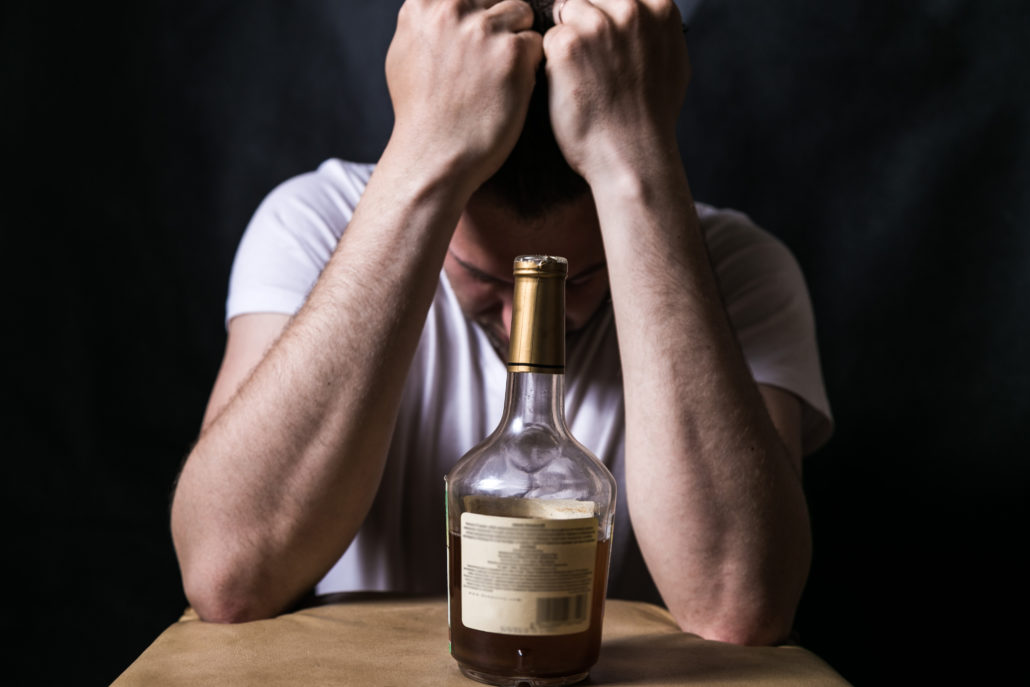What is Alcoholic Neuropathy?
Alcoholic neuropathy is damage to the nerves that results from excessive drinking of alcohol. Damage to the nerves leads to unusual sensations in the limbs, reduced mobility, and loss of some bodily functions. Changes in muscle strength or sensation usually occur on both sides of the body and are more common in the legs than in the arms. In addition, symptoms typically develop gradually and become worse over time. Recognizing the signs and seeking treatment early can reduce the risk of permanent disability. People with this condition should stop consuming any alcoholic beverage to help improve symptoms and avert any further nerve damage

According to the National Center for Biotechnology Information (NCBI) [1], says that in the United States, neuropathy is present in 25–66% of defined ‘chronic alcoholics’. The factors most directly associated with the development of alcoholic neuropathy include the duration and amount of total lifetime alcohol consumption. In addition, neuropathy is more common in heavy, and continuous drinkers than more episodic drinkers.
Signs and Symptoms of Alcoholic Neuropathy
Someone who struggles with alcoholism may replace meals with alcohol, take in a lot of empty calories, and not maintain a healthy and balanced diet. Alcohol can also drain the body of essential nutrients, and thiamine (vitamin B1) deficiency is common in people who battle alcoholism. Malnutrition due to alcoholism can contribute to nerve damage and alcoholic polyneuropathy as well.
Signs and symptoms of alcoholic neuropathy can progress gradually, and they are usually subtle at first. Often, a person who drinks heavily might not recognize that the symptoms are related to alcohol or to neuropathy. Signs and symptoms include any combination of the following:
- Tingling sensation in the arms, legs, hands, and feet
- Numbness of the legs and arms
- Feeling of “pins and needles”
- Burning, stabbing, shooting, or freezing pains
- Difficulties using arms and legs
- Lack of motor coordination
- Falling down often
- Inability to feel pain or recognize temperature changes
- Sensitivity to touch
- Muscle weakness, cramps, spasms, and aches
- Unsteady gait and trouble walking
- Difficulties urinating and leaking urine (incontinence)
- Constipation or diarrhea
- Impotence (problems getting an erection)
- Intolerance to heat
- Nausea and vomiting
- Trouble swallowing, eating, and/or talking
- Dizziness
- Digestive issues
- Excessive sweating
- Irregular blood pressure and heart rate
- Breathing problems
- Skin and nail infections
Potential Complications of Alcoholic Neuropathy

Complications of untreated alcoholic neuropathy can be severe, even life-threatening in some cases. You can help minimize your risk of serious complications by following the treatment plan you and your health care professional design specifically for you. Complications of alcoholic neuropathy include:
- Disability
- Permanent loss of sensation
- Permanent nerve damage
- Impaired coordination
- Permanent or chronic pain
- Progressive, irreversible dementia
Risk Factors for Alcoholic Neuropathy
Several factors increase the risk of developing alcoholic neuropathy. Not all people with risk factors will get alcoholic neuropathy. Risk factors for alcoholic neuropathy include:
- Alcohol abuse
- Alcoholism for ten or more years
- Diabetes (a chronic disease that affects your body’s ability to use sugar for energy)
- Kidney disease (includes any kidney problem, such as kidney stones, kidney failure, and kidney anomalies)
- Liver disease (includes any liver problem, such as hepatitis, cirrhosis, and liver failure)
- Vitamin deficiencies
A person may be able to lower your risk of alcoholic neuropathy by:
- Eating a healthy diet
- Limiting alcohol consumption to two drinks per day if you are a male and one drink a day if you are female
- Taking a multivitamin supplement, especially if you drink alcohol
- Treating an alcohol problem
Cause of Alcohol Neuropathy
Excessive, long-term consumption of alcohol can lead to malnutrition and nerve damage, and both contribute to the development of alcoholic neuropathy.
Alcohol can prevent the processing, transportation, and absorption of essential nutrients. Some people with alcohol use disorder also have poor food intake. Also, this can lead to deficiencies in:
- Vitamin E
- Vitamins B6 and B12
- Thiamine
- Niacin
- Folate
Deficiencies in these nutrients can harm overall health and stop nerves from functioning correctly.
How to Relieve Pain Caused by Alcoholic Neuropathy
In addition to following the treatment plan, you and your health care professional determine what is best for you, you can improve your symptoms by:
- Changing position to reduce pain
- Following a healthy diet to improve nutrition
- Getting a foot and hand massage
- Maintaining footwear to avoid injuries due to reduced feeling in feet
- Stopping alcohol use
Alcohol Abuse Treatment for People with Alcoholic Neuropathy
Medical detox program followed by a complete alcohol rehab program can manage alcoholism and help a person get sober and stay that way. Many alcohol rehab programs help manage co-occurring disorders, such as alcoholic neuropathy. A program that caters to co-occurring disorders ensures that alcoholism is being treated and so are any other medical or mental health issues. Medical, mental health, and substance abuse providers all work together to form and carry out a treatment plan that helps to manage all disorders at the same time. To diagnose alcoholic neuropathy, medical professionals will generally perform a few tests or exams to determine the severity of the disorder and what can be done to treat and manage the symptoms.
The following are beneficial treatments that may help people struggling with alcoholic polyneuropathy:
- Treatment for alcoholism
- Pain medication to address nerve pain and associated discomfort, which will be managed carefully and given in the lowest possible dose to minimize the potential for abuse and addiction
- Physical therapy to improve muscle function and strength as well as to manage pain
- Diet supplements that include vitamins E, B1, folate, and B12
- Considerations to manage loss of sensation and to prevent accidents and injuries
- Use of orthotic appliances like splints to keep arms and legs in proper positions and to offer needed support and improved muscle function
Medically Assisted Detox
Usually, the first step in inpatient treatment is medically assisted detox. Doctors and addiction specialists monitor clients’ vital signs while alcohol exit the system. Depending on the type of substance a person is detoxing from, withdrawal symptoms may differ.
Cravings are very common during detox and can be challenging to overcome. This often leads to relapse. Moreover, constant medical care provided during inpatient treatment helps prevent relapse. Clinicians can provide necessary medicine and medical expertise to lessen cravings and withdrawals.
Medication-Assisted Treatments
Medications like antidepressants and anticonvulsants are often used to treat peripheral neuropathy; however, these drugs are prescribed sparingly and with close supervision for those suffering from alcoholic neuropathy because of the risk for abuse and addiction. Instead, non-medication-based therapies are often preferred.
Because individuals who suffer from alcoholic neuropathy often suffer from nutritional deficiencies, doctors may consult with nutritionists and recommend a specific diet. In addition, nutrition therapy, including the use of supplementation and special diets, is often used in the treatment of alcohol-related liver disease.
Integrated Mental Health Care
Alcohol affects mental health, so people may use it to self-medicate undiagnosed disorders. Rehab centers typically provide mental health screenings, diagnoses, and integrated treatment for co-occurring disorders. In addition, holistic and therapeutic approaches are often used to treat recovering addicts with these conditions.
Behavioral Therapies
Cognitive Behavioral Therapy (CBT) and Dialectical Behavioral Therapy (DBT) can improve addicts’ behavior. CBT targets negative and maladaptive thought patterns as it promotes positive emotions and beliefs, while DBT helps clients address conflicting impulses so they can make healthy choices. Both therapies treat substance abuse, anxiety disorders, and other mood issues. Therapy also empowers clients to identify, avoid and mitigate cues that trigger drug cravings.
Individual and Group Counseling
Addiction and mental health counseling occur in both individual and group settings. One-on-one treatment sessions may address unresolved trauma, unconscious conflicts, and specific struggles, while group sessions often involve training in life skills, stress management, conflict resolution, and social connections. Group counseling also gives clients the chance to share their thoughts and experiences to develop social support, which is essential for lasting recovery.
Find the Right Primary Mental Health Treatment Plan with Co-Occurring Secondary Addiction Diagnosis
During your rehabilitation, the staff from your treatment facility will help you identify what caused your addiction and teach you skills that will help you change your behavior patterns and challenge the negative thoughts that led to your addiction. Sometimes, the pressures and problems in your life lead you to rely on substances to help you forget about them momentarily.
Please, do not try to detox on your own. The detox process can be painful and difficult without medical assistance. It’s hard enough that you are struggling with alcoholic neuropathy. If you or someone you know is struggling with this condition, it is important to intervene early.
Inpatient medical detox and residential primary addiction treatment may be available at our affiliated facility at Level Up West Palm Beach Rehab. For some primary behavioral health treatment clients, medical detox and or addiction rehab may be required first. If you have a co-occurring severe substance abuse diagnosis, please contact us prior to beginning inpatient mental health therapy. Treatment services may vary. Please call us to learn which treatment options are most suited for your individual needs.
Sources
[1] NCBI – https://www.ncbi.nlm.nih.gov/pmc/articles/PMC3370340/
[2] Alcoholic Neuropathy » Drug Alcohol Addiction Rehab – We Level Up